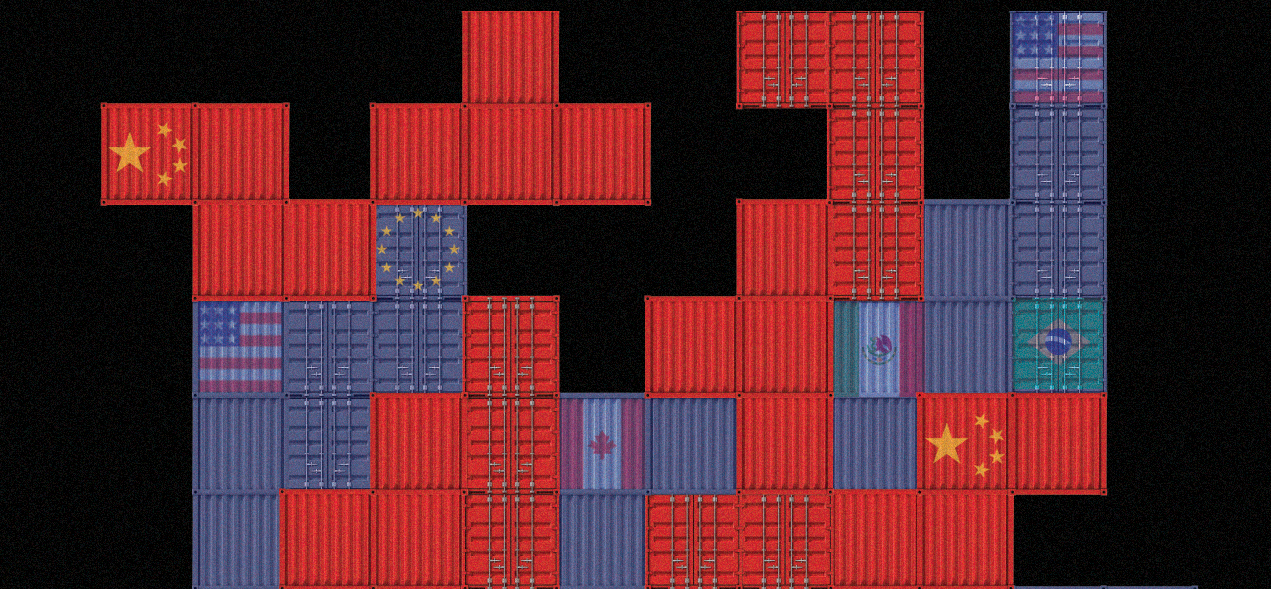
August 04, 2025
Game Over? How the United States Could Have Won the Trade Wars
CNAS Releases Innovative Trade Wargame Report
Washington, August 4, 2025 — Today, the Center for a New American Security (CNAS) released a new report, Game Over? How the United States Could Have Won the Trade Wars, by Emily Kilcrease and Geoffrey Gertz of the CNAS Energy, Economics, and Security Program.
On Friday, the Trump administration announced new tariff rates for a host of countries—the latest salvo in a global trade war that has reshaped the economic relationship between the United States and the world. In March, shortly before President Donald Trump first announced sweeping tariffs on so-called “Liberation Day,” CNAS convened leading trade experts to conduct a first-of-its-kind tabletop exercise that explored possible pathways to resolve the trade wars. While not predictive, the game sought to understand how foreign governments might respond to significant U.S. tariff escalation.
The report released today identifies four key lessons from the trade wargame:
- Economic gravity is hard to fight. The centrality of the U.S. economy meant that other country teams felt obligated to seek a quick resolution to U.S. demands, rather than risk losing access to the U.S. market.
- Foreign governments may be incentivized to de-escalate security issues to keep trade talks on track—at least to a point. The game introduced a variety of security issues that forced players to contend with the risk of a broader breakdown in relations between the United States and its allies. However, players consistently de-escalated to allow space for trade deals.
- Negotiators are more likely to reach agreements when they are flexible and expand the deal space. Teams proved creative in crafting agreements that went beyond simply removing tariffs and had the most success when pursuing broader economic and political packages.
- China is unlikely to capitalize on the trade wars to emerge as the new leader of the global economic order. Country teams representing advanced industrialized democracies were hesitant to deepen integration with China, reflecting their own assessments of the economic and security risks of reliance on the China market. Teams representing Global South countries, however, hedged their actions, indicating that China may make more inroads with these countries if they lose access to the U.S. market in the real world.
During the game, high, predictable, and sustained U.S. tariffs created conditions that allowed the U.S. team to make meaningful progress toward a necessary reset of the global economic order, addressing long-standing trade barriers and advancing responsible derisking away from China. The authors caution, however, that in the real world, the Trump administration’s more chaotic trade policy may undermine the durability of any deals reached with foreign governments.
The research is part of A World Safe for Prosperity, a major new initiative from the CNAS Energy, Economics, and Security Program designed to inform U.S. policymakers, private sector stakeholders, and international counterparts on how to update the global economic order to reflect the rise of economic security as a key feature of government policymaking.
The full report is available here.
For more information or to arrange an interview with the report authors, please contact Charles Horn at [email protected]

Game Over?
The trade wargame suggests that sustained high tariffs could create leverage and urgency to spur action toward a productive restructuring of the international trade system....
Read More